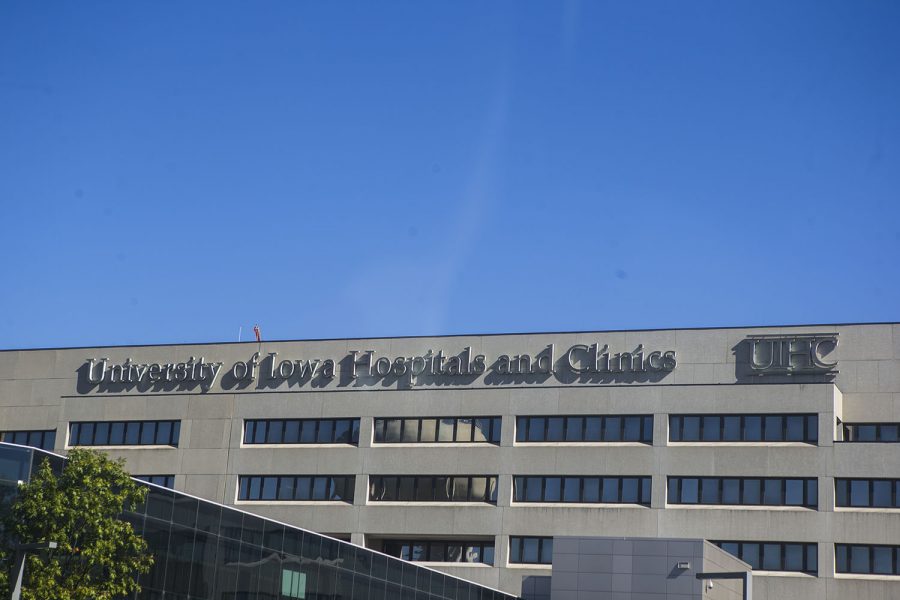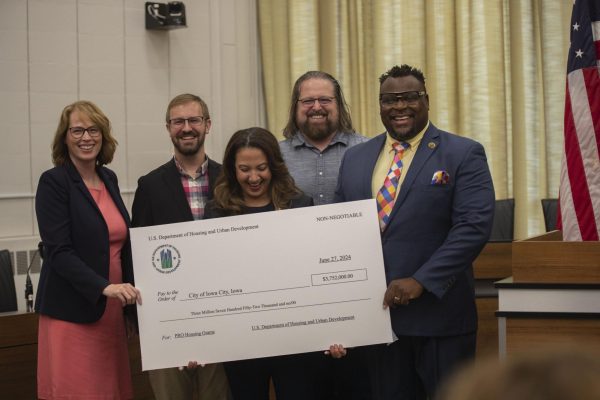UIHC focuses on treating cancer with Vitamin C
UIHC has received a five-year, $9.7 million grant to study how high doses of Vitamin C may help treat various forms of cancer.
December 11, 2018
Researchers at the University of Iowa Holden Comprehensive Cancer Center received a $9.7 million grant from the National Cancer Institute to see if high-dose vitamin C can be used to treat cancer.
Existing research has shown that while levels of vitamin C can be toxic for cancer cells, normal cells will remain relatively untouched.
The five-year grant involves three projects led by chief of surgical services at the VA Medical Center Professor Joseph Cullen and director of the free radical radiation biology program Professor Douglas Spitz.
Each project involves using vitamin C in intravenous treatments for three of the deadliest cancers affecting the U.S. population: pancreatic cancer, non-small cell lung cancer, and glioblastoma multiforme, an aggressive type of brain cancer.
“This grant will attract lots of national attention to our oncology departments and Cancer Center, which will propel this science to the national stage,” Spitz said. “If successful, this will lead to large, phase-3 clinical trials centered at the University of Iowa.”
The grant money will involve a large team of researchers to focus on decreasing metastatic disease, improve imaging, and look at the role of redox metal ions when synergizing with vitamin C. These studies will allow for more concentrated treatments for various types of cancer-based on what doses work best.
RELATED: UI researchers develop new method to decrease the risk of strokes
The Holden Center’s study of vitamin C began in 2005, when researchers focused on using vitamin C in patients. Radiation oncology Professor John Buatti said the team worked toward a clinical trial in 2009 and 2010, and he received grant money in 2013 to support the work.
“It takes a while for all these dominoes to fall into place,” Buatti said. “This grant brings a big team together to address cancer therapy. In the team, we can bounce ideas off each other, and, more importantly, share data about what worked and didn’t work in different cancer settings.”
With the grant money, the team hopes to support both new and ongoing trials and to see which treatments work best with certain cancers.
“Two of the projects have phase-2 trials, so that’s using a certain dosage in a larger cohort of patients,” Cullen said. “We are hoping that will lead to phase-3 trials, where we will randomize to see the efficacy.”
Vitamin C is not currently approved by the Federal Drug Administration; interested patients can only have access to the therapies by taking part in clinical trials. Because these levels are high-dose, numbers will surpass that of a normal nutritional value.
“One of the main things that the public needs to know is that no matter how much oral vitamin C you take, you won’t get the antitumor effect,” Cullen said. “When you drink vitamin C, you only get micromolar levels in your blood, but we bypass those mechanisms and get a 100-fold increase in those levels, which will kill cancer.”














